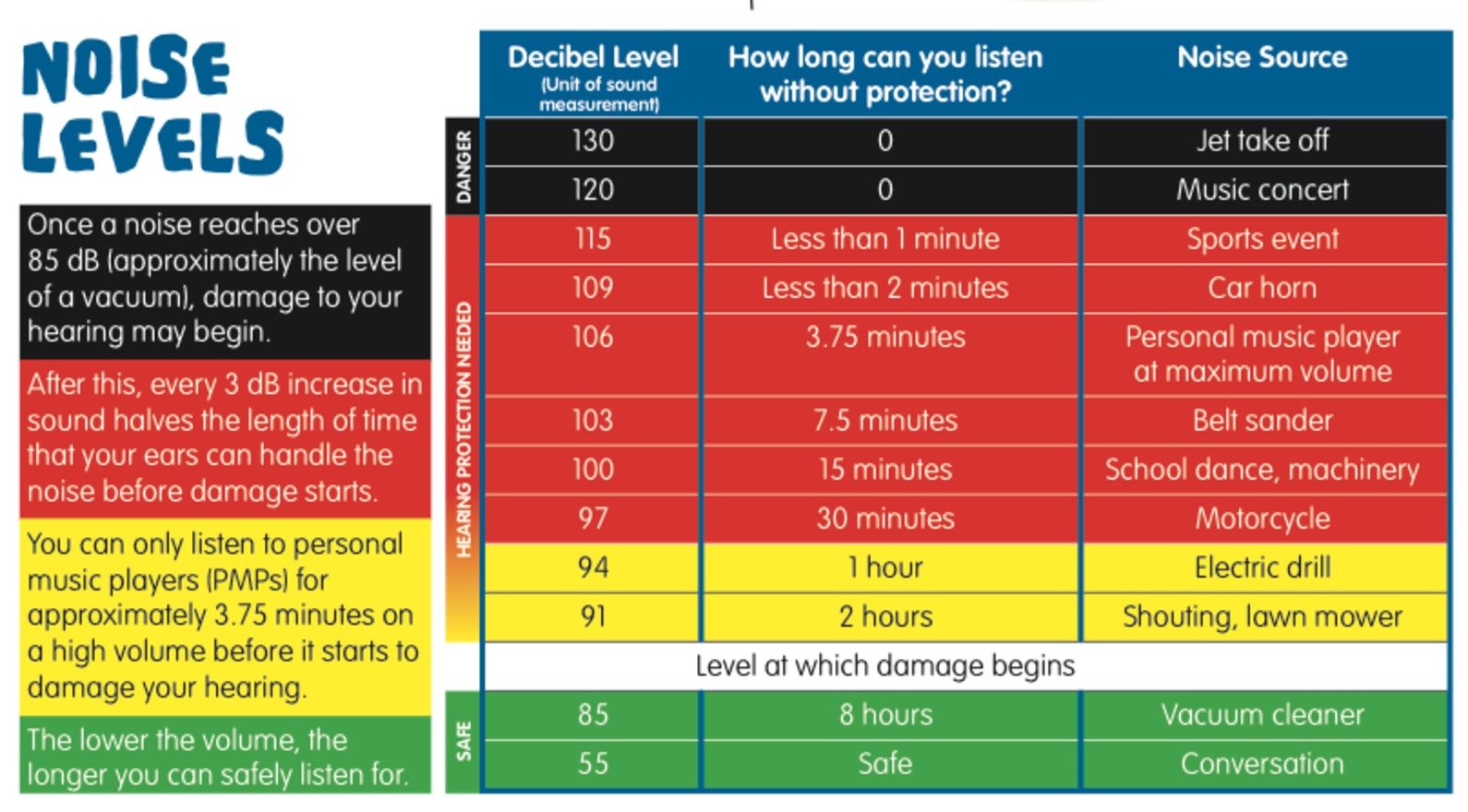
Measure the sound level with a Sound Meter RISEPRO Decibel Meter (From: Amazon)Ī sound or decibel meter is a device to measure sound levels in decibels (dB).
#NOISE DECIBEL PROFESSIONAL#
However, it’s prudent to consult with a professional for a better diagnosis and treatment of your hearing condition. Can you hear the music clearly? If so, try turning it down and repeating again.Ĭheck out some more symptoms of hearing loss so you can know what to look out for. Then, hold them out in front of you at an arm’s length. Hold your headphones out in front of you Holding headphones at arms length (From: Freepik)Īnother test we recommend is testing if you can still hear your headphones at a distance.įor this, remove your headphones while music is still playing, and keep them at your usual volume level. When the ringing becomes more intense than your baseline level, it is time to turn it down a notch or two. Repeat as regularly as you need to in order to gauge the effect of the volume level. If the ringing is louder than it was in the earlier test, then the noise from your headphones is too powerful. Then in the evening, redo the test in a quiet space. The next day, resume headphone activity as normal. Relax as much as you can, concentrate on your breathing and remain completely still.ĭuring the silence, you should hear a very slight ringing in your ears – this is your baseline level.

To do this, take a break from using your headphones and listening to any music for 2-3 days.Īfter this period, go to a quiet room and place the earplugs in your ears. This test requires a simple pair of foam earplugs and a peaceful setting. That’s why this test will help you determine if you’re already experiencing ringing in the hears without even noticing. At times, when you are in a quiet environment, you may experience phantom ringing.

Read on.Įar ringing doesn’t always mean that you have tinnitus. That’s why we’ve listed down some surefire ways to check if your headphones are too loud in the next section. However, that isn’t usually accurate so you can still be at risk of the different hearing problems accustomed to loud headphone volumes. For example, an 85 dB noise level is akin to heavy city traffic, a busy hotel lobby, or a garbage disposal system. You can try to determine what each decibel-rated noise level sounds like by comparing it with other sounds in your environment. While you may not notice it, listening to headphones at 105dB and up for long periods is like listening to someone shouting into your ear for hours. However, listening to more than 85dB is already marked red and can cause irreparable damage. This is why you can listen to audio that’s rated at 85 dB for up to 8 hours without risking noise-related hearing loss.

#NOISE DECIBEL HOW TO#
For this reason, you need to know how to rate the sound levels of your headphones so you can limit your listening time.įor that, let’s have a look at a decibel chart below: Sound decibel chartįrom the chart, we can see that anything below 85 dB isn’t considered a risk to your hearing. Typically, most listeners maintain the sound levels at around 75 dB to 105 dB when listening to audio. However, average audio devices have a sound level ranging from 75 to 136 dB. The World Health Organization (WHO) suggests you should listen to your headphones at a volume level of 85 decibels (dB) for only 8 hours.

Henson, Clinical Audiologist How Loud is ‘Too Loud’ for Headphones? There’s no treatment for sensorineural hearing loss, however, we do recommend hearing aids to help slow down the progression of hearing loss.” “ Noise-induced hearing loss often causes sensorineural hearing loss which is actually irreversible.


 0 kommentar(er)
0 kommentar(er)
